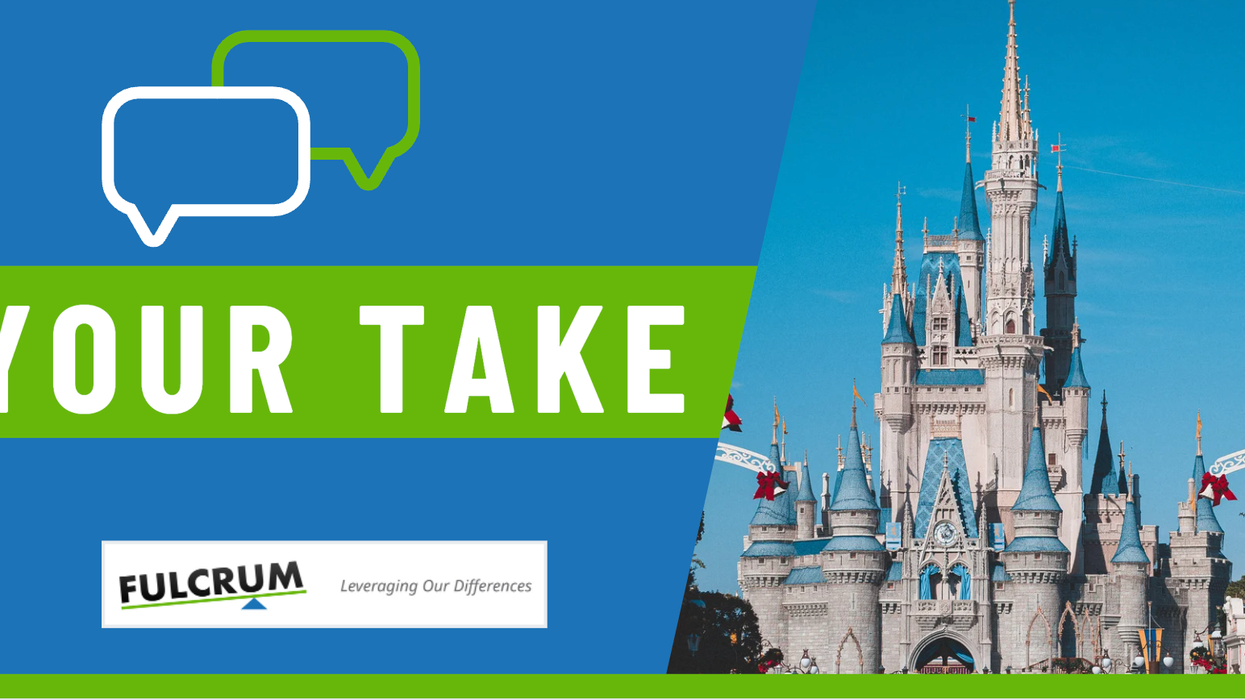Recently, Gov. Ron DeSantis and the Florida Legislature voted to revoke Disney World’s special tax district. The move was made in response to Disney’s criticism of Florida’s controversial education bill limiting the discussion of sex in schools.
We asked our readers:
Can it be appropriate for a state government to punish a corporation that is critical of its agenda? Should Disney World have received special treatment in the first place?
While many people questioned whether an individual business should get special treatment, most objected to what they viewed as retaliatory tactics by the government.
Your responses, edited for clarity and length:
I would say that an initial special tax treatment/district control by the state for a private corporation is warranted if approved by the state's and muncipality's voters. It should probably be limited and not permanent, to sunset after several years. Disney should not receive special treatment permanently as that sounds anti-competitive. A private corporation must be mindful of the political preferences of the community in which it resides and does business. Thus it must weigh the interests of its more narrow stakeholders against the larger population that sets political priorities. Disney foolishly ignored this caveat that left itself vulnerable to political entrepreneurship by Gov. DeSantis. -Michael Harrington
Our government is supposed to enact policies that serve the public good, protect its citizens and commit to rule of law. What DeSantis does is violate these guidelines and acts more in the tradition of an authoritarian ruler. Punishment of those who do not “toe the line” is not in the interest of democracy. -Rhoda Schermer
This is wrong on so many levels. Bad governance, bad judgment, bad faith with Disney, bad faith with voters. In addition it achieves nothing except chaos. -Ray Curtis
I don't agree with what DeSantis has done. It is retaliation for a private company’s opinion. Republicans are supposed to be the business party. There are many more of these tax deals throughout Florida, The Villages for example. If Florida decides to extend this type of program I don't see a problem with it. -Cristy Heckller
Whether or not Disney World’s special treatment was a good idea is not the issue. Rather, what is the motivation behind the Florida Legislature’s vote to revoke it? If the motivation is to punish The Walt Disney Company for expressing its opinion about Florida’s education bill, then the vote is a violation of Disney’s speech rights as expressed in Citizens United v. Federal Election Commission. But more worrisome is the adoption of the thuggish practices that dictatorships use to intimidate citizens and companies. The Florida vote is exactly the type of actions that Chavez took in Venezuela, Ortega in Nicaragua, Orban in Hungary, Erdogan in Turkey, Mugabe in Zimbabwe. De Santis is in great company. -Felix Bergel
Disney vs. DeSantis is a ridiculous weaponization of the culture wars that seem to be all the rage in Republican circles, at least here in Florida. In 13 months, it may well cost Florida taxpayers millions of dollars, jeopardize the retirement and health care benefits of Disney employees, and seriously affect employment in at least two Florida counties. To be clear, I am categorically against state and/or local governments giving tax breaks to individual businesses. Not even to businesses as important to local economies as Disney has been. But I am outraged over the idea that a governor — or any other government official — can use the power of his office expressly to harm a company for disagreeing with him. Do we no longer recognize free speech rights, or is that reserved only for speech we agree with? We seem to be using the power of incumbency to punish people who disagree with our political positions. Two years ago I thought this was limited to the former president and perhaps a few others. Now it seems to be swallowing both parties. I’m not sure we can recover from this, and I’m frightened. -Kathleen Finderson




















Trump & Hegseth gave Mark Kelly a huge 2028 gift